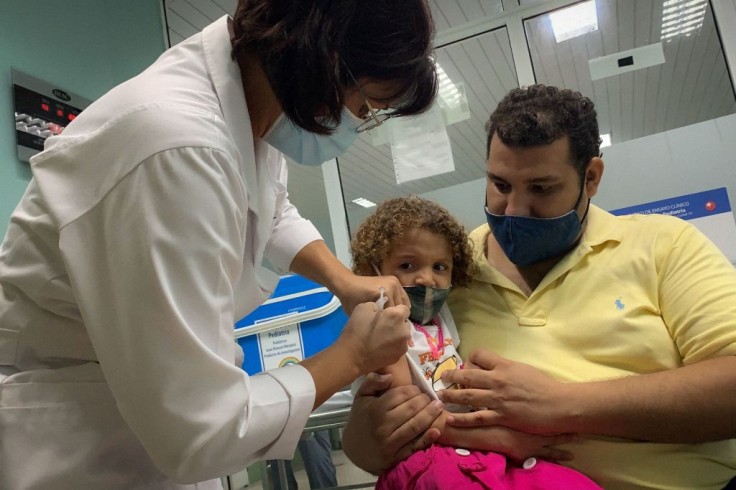
Toddlers in Cuba will be the first in the world to get their COVID-19 vaccinations despite no recognition from the World Health Organization. On the other hand, Chile will start rolling out Sinovac for children as young as six years old.
Cuba has been using its locally-produced COVID-19 vaccines, Abdala and Soberana, for its inoculation program for more than 11 million residents. Clinical trials in minors showed that Abdala and Soberana, which the state-owned firm, Finlay Institute, manufactures, has a 90 percent efficacy rate. But it is not a globally recognized vaccine brand.
Now, the country wants the kids to be vaccinated as well so that they can resume in-person classes. Schools have remained closed in Cuba since March 2020, and while a new school year has started this September, the classes have remained online.
However, leaders want the children to gradually go back to in-person learning by October, thus the move to include toddlers to 11 years old in their vaccination program. Vaccination for school children from 12 years old or older has started the previous week.
COVID Situation in Cuba, Chile
Cuba has had more than 690,000 cases since the start of the pandemic. Its death count is at 5,700, with 2,400 having died within August 2021. The country is currently experiencing a surge in cases despite its effective containment last year, before the Delta variant spread.
Some 60 percent of the 2.2 million adult residents of Havana, the country's capital, have been fully vaccinated. About 50 percent of the general population have received at least one dose.
Apart from the COVID-19 cases, Cuba's food and medical supplies have been running short because of the trading sanctions imposed by the U.S. Its tourism industry has also been shut down, but leaders are hoping to re-open this industry by November.
Meanwhile, Chile is the first Latin American country to announce the rollout of the Sinovac vaccines for children between 6 years old to 11 years old. Even though its public health experts have voted to approve the COVID-19 vaccinations, a Sinovac study involving 4,000 Chilean children is still underway.
It comes after China has authorized the vaccine for children between three to 17 years old in June 2021. Chile has had more than 1.6 million cases since the pandemic started, wherein over 37,000 have died. In July, Chile has reportedly vaccinated 78 percent of its adult population, one of the fastest rollouts in the world.
Britain Holds Vaccines for Kids
Amid the push to vaccinate younger kids in Latin America, health experts in Britain, on the other hand, have been holding back on the vaccination rollout for 12 to 15 years old kids. According to the BBC, the country's ministers have asked the health officials to review the guidelines. They have concerns over reports that the Pfizer vaccine, the approved brand for children, may cause heart inflammation, especially for those with pre-existing conditions.
Britain hopes to vaccinate older kids as school is also set to begin this fall. However, members of its Joint Committee on Vaccination and Immunization said that it would have to go over the safety data for Pfizer in kids as the "margin of benefit" might be too small for this age group.
Related Article: Families With Unvaccinated Children Try To Navigate COVID-19 Risks